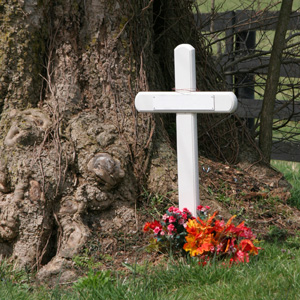 If you live long enough in a place, people will start to die there, but the phenomenon of time’s passage is often framed more romantically. Consider the lines of the classic Beatles song (emphasis mine):
If you live long enough in a place, people will start to die there, but the phenomenon of time’s passage is often framed more romantically. Consider the lines of the classic Beatles song (emphasis mine):
There are places I remember…
Some have gone and some remain
All these places have their moments
with lovers and friends I still can recall
Some are dead and some are living
In my life, I’ve loved them all.
I’m not immune to this tendency myself. I am a Southerner, after all, and a Mississippian, a member of the tribe for whom the phrase “a sense of place” is endlessly and (often) sententiously invoked.
A real joke: How many Southerners does it take to change a light bulb? Answer: Three. One to call the yardman, one to mix the martinis, and one to talk about how lovely the old one was.
I’ve lived in Washington, D.C. long enough now to have seen the tsunami of contractor and government-relations affluence mow down the “Chocolate City” of Marion Barry (of blessed memory) under a carpet of exposed-ductwork loft condo developments and open-plan office buildings.
I have come to venerate the grace of lost places as well as anyone else—just in the last couple of months or so, I found myself getting wistful even about the final departure of the longtime D.C. Eagle, the gay biker bar I have driven by on my way home every night for the past nine years. Its broken-toothed façade draped with demolition scaffolding, its rainbow flag hung in tatters, looking for all the world like the ragged U.S. version that flew ominously atop Captain Willard’s PBR in Apocalypse Now.
I moved to metropolitan Washington, D.C. nearly seventeen years ago, driving up I-95 from South Carolina with David, a former student from the small, financially troubled religious college we were both fleeing—he was catching a ride up for an interview for a potential fellowship, and I was leaving for a temporary transcript editing job garnered through some unexpected but miraculous connections.
The journey seemed less a pilgrimage than a final exit from a sojourn in the wilderness—we’d left Columbia in the afternoon, and ate a twilight dinner at a North Carolina diner where we witnessed African-Americans being denied service. Well after midnight, we drove through the broad valley of mid-rise condominium buildings along Northern Virginia’s final stretch of I-95, their shining lights appearing to our tired eyes like the ramparts of some infernal city.
It was March 27, 1998. David ended up going back home to California—he is now a successful Sacramento attorney—but I stayed. In a city where so many people are here only for an election cycle or a post-college lark, I worked, married, and bore two children. I have crossed my arms in the Communion line in a plethora of Orthodox churches, opening my mouth to receive the fiery body of God.
I have lived here long enough for the harvest of deaths to equal the number of lives I’ve seen enter the world. So let me now name a few, beginning with parishioners at my first Russian Orthodox parish:
Aggie Loboda the Coffee Hour Queen at St. Nicholas, Vera Fairchok, and sweet Anna Fennessey, whose cheek kisses left bright imprints of red lipstick. Most of them were “Pennslovakian” wives of federal employees of the CIA, Labor, State, or civil servants themselves, in an era before the title civil servant was a term of scorn.
And the Greeks, whom I came to know after my husband and I were married at St. Sophia Cathedral, now gone: lovely, kind Fran Lakas, felled by cancer while still in her fifties, and the amazing Georgia Pistolas, about whom I have written before.
I would argue that it is not the fact of abiding in a church that has enabled me to know the lives that haunt me. Rather, it’s just the fact of simply abiding—if only I could attend every funeral, mark every holy and unseen step. I think that we are so easily sentimental about the places we have lost because they do not lay claim or purchase on our lives—they are full of “that silence we have come to expect and want from the past,” to invoke Joan Didion.
I think instead that it is the people around us whom we must come to know, deeply and authentically. Both those tangential, and those close. Make the visit now. Go to the funeral anyway, whether you knew them well or not.
In a city full of strangers—and aren’t all cities this way now, and even our deserted towns?—we are each other’s family.
When I go home in the evenings, driving out New York Avenue, past the ruins of the gay biker bar, I pass by the records of three deaths, and each day as I drive, WTOP blasting on the radio. I make the sign of the cross at the places where they died:
First is Lefty, a homeless man stabbed beside a concrete overpass near the intersection of Florida Avenue. I drove by late one night in 2007 amid a hive of police cars, and saw the numbered markers that tracked his very last steps.
Twenty minutes later, turning onto a residential street, I pass the corner wheelbarrow brimming with flowers, where the teenage boy—the love of his parents’ heart—was cut down after a basketball game by a stranger on fourth of July 2009.
And finally, at my corner, the overgrown lot where the retiree had tried to help his troubled grandson, who in a fit of mania shot them both.
Each day, each cross, a memory. Somebody has to stay here and do it. You need to do it somewhere too—even if it is not a cross you make, and if you only believe that the dust returns to the ground.
A native of Yazoo City, Mississippi, Caroline Langston is a convert to the Eastern Orthodox Church. She is a widely published writer and essayist, a winner of the Pushcart Prize, and a commentator for NPR’s “All Things Considered.”















